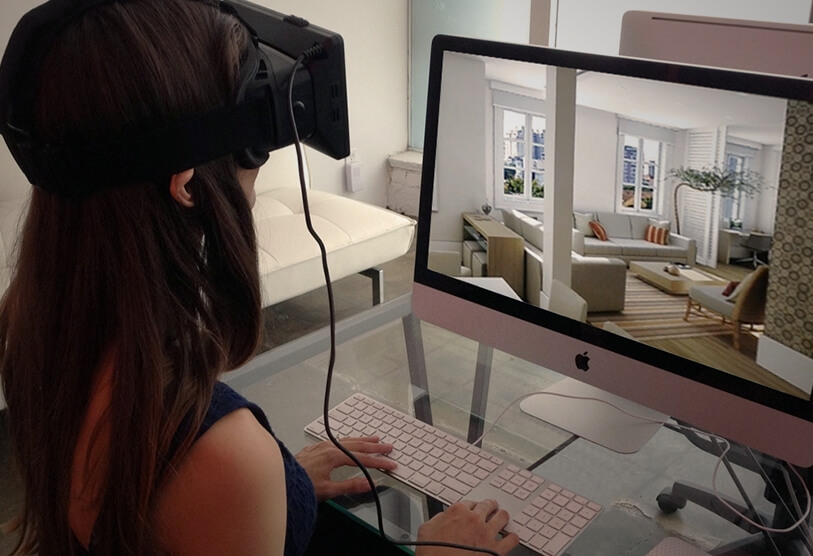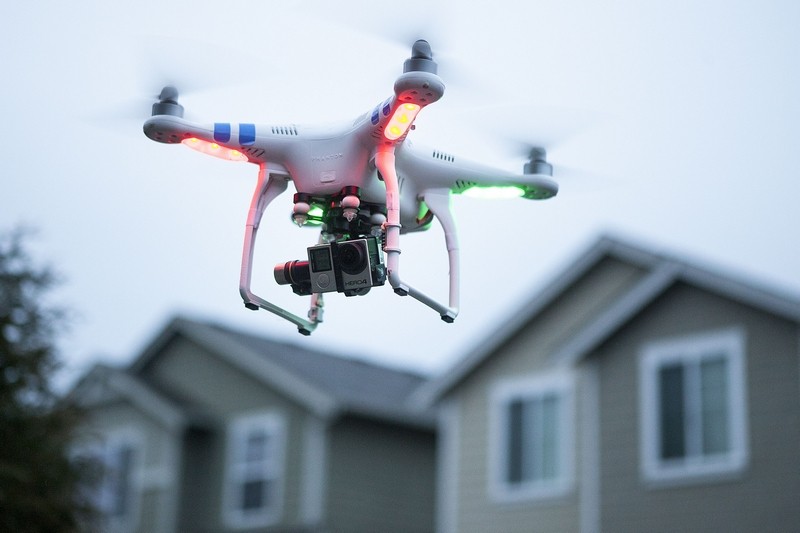New technologies strike like lightning. The willingness to keep up with the new trends is no longer a prerogative of big companies, with ever more small businesses trying to bring technology to their business models.
For real estate industry, this may seem like a challenge, as their workflow hasn’t changed for ages, and many companies still stick to the conservative methods of handling their business activities. While the idea to create the next Airbnb is bitterly ambitious for the average realtor, some simpler trends can give them a competitive advantage in the eyes of demanding and savvy customers.
So, what gives a cutting edge to a real estate company? Let’s see top 5 trends that will transform your business.
1. VIRTUAL REALITY AND 3D TOURS

You can invest more and make visits interactive by boosting a VR experience with hotspots, which are being activated when you concentrate your sight on them, allowing you to organize the walkthrough at your own pace.
As a cheaper alternative to virtual reality, you can try out 3D tours around the house. Create 3D floor plans and show the property as a dollhouse on your website or within your portfolio.
2. AUGMENTED REALITY/GAMIFICATION

- The application to “test-drive” the furniture, wallpapers, or other decoration elements inside open houses, to find out if it meets their expectations. Add the option of changing colors, size, placement – this will add some room for your customer imagination and speed up their decision-making process.
- The app based on the map, where you can direct your smartphone at the building and see what amenities are nearby and how far they are from the initial point.
3. FIELD SERVICE APP

- Schedules with a calendar and property view.
- Detailed overview of each client and task.
- Property info instant updates.
- Notes.
- Audio- and video recordings.
- Signatures capture.
4. VIDEO STREAMING

- You can broadcast each of the requested locations to multiple clients.
- Your stream will be available on several web and mobile platforms.
- You can have a discussion through comments online and answer customer’s questions in the field.
- You can save the videos for your clients to “like” and take a new look whenever they want to.
5. DRONES

What is it good for?
- Expansive photos of landscapes and vistas in the areas.
- Views of bigger homes and larger areas.
- Videos with town tours.
- House walkthroughs.
What is it not good for?
- Highly-focused photography.
- The interiors of small apartments.
- The exteriors of the houses hidden under the trees.
- Standard catalogue photos expected by visitors.
6. BUSINESS INTELLIGENCE

Marketing research.
Business intelligence tools allow you to dig deeper into your potential customers’ profiles and outline the trends and behaviors for a particular geographical area, gender, or age, for you to bring this information into your targeted marketing strategy building.
Customer relations.
Big data analysis tools can help you to gather feedback from every important entity – starting with property owners to investors and end customers.
Risk mitigation.
Real estate industry deals much with investment in property, loans, interests rates etc. All of this data needs to be aggregated and analyzed against possible risk exposures, and big data is a prompt tool to do this.
What trends would you add? This list can be continued, as the real estate technology experiences constant growth, with the emergence of new platforms and the rise of custom software development. Ever more real estate agencies are ready to embrace new trends and bring digital revolution to their conservative companies, winning more customers and providing better services.









